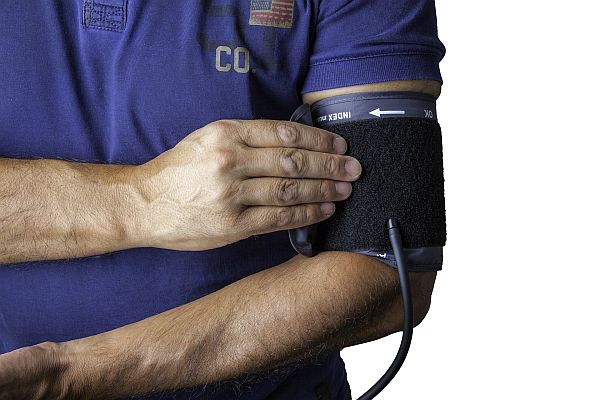AN OVERVIEW ON BLOOD PRESSURE.
Blood pressure is a measurement of the pressure exerted by the circulating blood on the walls of the arteries, veins and chambers of the heart. The pressure of blood is measured in the context of systolic and diastolic activities. When the ventricles in the heart contract, it is termed as a systolic activity, while the relaxing ventricles mark a diastolic activity.
The pressure of blood is highest during the systole activity and lowest during the diastole activity. The unit of measuring blood pressure is millimeters. A normal blood pressure reading is 120/80 mmHg.
A normal healthy person maintains the blood pressure reading of 120/80 mmHg. A deviation from this normal reading can result in a blood pressure disorder. There are basically two abnormal conditions of blood pressure. They are known as high blood pressure or hypertension and low blood pressure or hypotension.

High blood pressure/Hypertension
A person is known to suffer from high blood pressure when their measurement of blood pressure increases over that of a normal reading. A normal blood pressure is 120/80 mmHg. When this blood pressure increases to 140/ 90 mmHg, the person is known to have high blood pressure.
High blood pressure is often termed as ‘a silent killer’. You might be suffering from a high blood pressure for a long period of time and not know it at all. When a person develops high blood pressure, it usually lasts for lifetime.
Why High Blood Pressure?
Your heart pumps the blood and supplies it to the various organs of your body via arteries. The arteries, when leaving your heart, narrow into arterioles. The arterioles further narrow themselves into capillaries. These capillaries supply oxygen and nutrients to the various body organs.

Due to certain nerve impulses, the arteries become dilated or contracted. If the arteries become contracted, the passage of blood is hampered and it increases the pressure of blood. This condition causes high blood pressure or hypertension. This condition strains your heart and can even damage your blood vessels. If the vessels get damaged, the blood supply can further affect various body organs connected to the damaged vessels.
The human body generally bears and handles this sudden increase of pressure for a long period of time. This is one of the sole reasons for the fact that you can live your whole life, without any ill-effects or symptoms, from high blood pressure.

